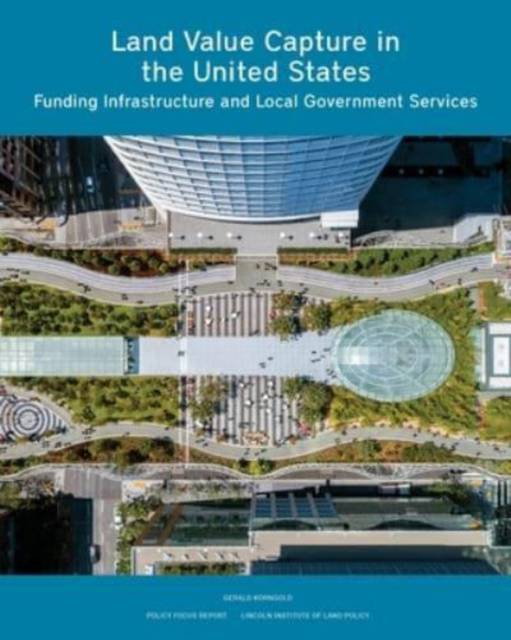
- Afhalen na 1 uur in een winkel met voorraad
- Gratis thuislevering in België vanaf € 30
- Ruim aanbod met 7 miljoen producten
- Afhalen na 1 uur in een winkel met voorraad
- Gratis thuislevering in België vanaf € 30
- Ruim aanbod met 7 miljoen producten
Zoeken
Land Value Capture in the United States
Funding Infrastructure and Local Government Services
Gerald Korngold
€ 26,45
+ 52 punten
Omschrijving
Land value capture (LVC) is based on a simple core premise: public action should generate public benefit. As challenges mount from rapid urbanization, deteriorating infrastructure, climate change, and more, this funding source has never been more important to the future of municipalities. LVC tools include special assessments, exactions, impact fees, linkage fees, incentive zoning, transferable development rights with contribu-tions, and upzoning with contributions. To date, American law has permitted LVC tools, subject to some limitations. As a result, land value capture is a viable and potentially important method for funding much-needed public infrastructure, improvements, and programs. Policy makers should seriously consider increasing LVC-based financing.
Specificaties
Betrokkenen
- Auteur(s):
- Uitgeverij:
Inhoud
- Aantal bladzijden:
- 64
- Taal:
- Engels
- Reeks:
Eigenschappen
- Productcode (EAN):
- 9781558444423
- Verschijningsdatum:
- 15/11/2022
- Uitvoering:
- Paperback
- Formaat:
- Trade paperback (VS)
- Afmetingen:
- 201 mm x 249 mm
- Gewicht:
- 181 g

Alleen bij Standaard Boekhandel
+ 52 punten op je klantenkaart van Standaard Boekhandel
Beoordelingen
We publiceren alleen reviews die voldoen aan de voorwaarden voor reviews. Bekijk onze voorwaarden voor reviews.











